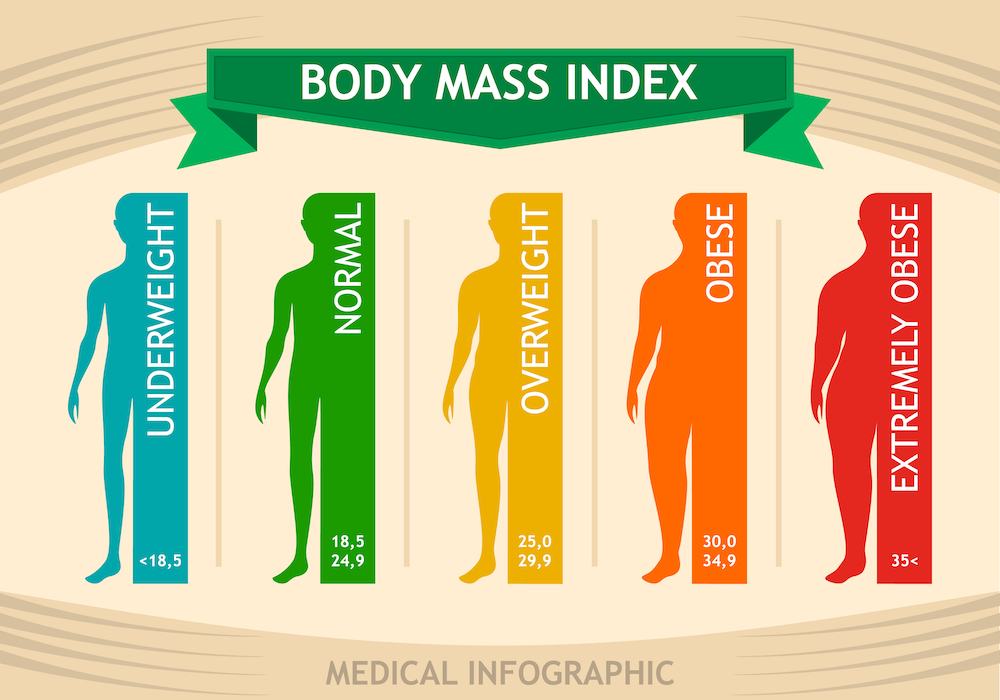Do you ever wonder how healthy you are? You may have heard of Body Mass Index (BMI) before, but what is it exactly and how do you calculate it? BMI is a calculation that uses your weight and height to estimate how much body fat you have. BAI (Body Adiposity Index) is a newer measure that uses skinfold thickness measurements to give a more accurate estimate of body fat percentage. In this blog post, we will teach you how to calculate your BMI and BAI. We’ll also show you how to interpret the results, so you can see where you fall on the spectrum of healthy to unhealthy. Let’s get started!
What is The Body Adiposity Index (BAI)?
The Body Adiposity Index (BAI) is a measure of body fat distribution that is used to estimate the percent of body fat. The BAI is calculated by dividing the waist circumference by the hip circumference. The resulting number is then multiplied by 100.
The BAI has been found to be a reliable predictor of body fat percentage in both men and women. However, the BAI is not a perfect measure of body fat distribution. For example, the BAI does not account for body size or muscle mass. Additionally, the BAI may overestimate body fat in people who are overweight or obese.
Despite its limitations, the BAI can be a useful tool for estimating body fat percentage. The BAI is easy to calculate and does not require special equipment. Additionally, the BAI can be used to track changes in body fat over time.
What is The Body Mass Index (BMI)
The Body Mass Index (BMI) is a measure of body fat based on height and weight that applies to both men and women between the ages of 18 and 65 years.
BMI can be used to indicate whether you are overweight, obese, underweight or normal weight. A high BMI can be an indicator of high body fatness. BMI can also be used as a screening tool to identify potential health risks such as heart disease, diabetes and cancer.
A BMI of 25.0 or more is overweight, while the healthy range is 18.5-24.9. A BMI of 30.0 or higher is obese. For most people, BMI provides a reliable indication of body fatness. However, BMI is not an accurate measure of body fat for athletes and people who have a muscular build.
What is a good Body Adiposity Index?
The BAI healthy ranges by sex and age are as follows:
For men:
BAI<=21 years old: 15-20
BAI>21 years old: 10-15
For women:
BAI<=21 years old: 20-25
BAI>21 years old: 15-20
What is a good Body Mass Index?
Everyone’s ideal body mass index (BMI) will be different based on their individual height, weight, and body composition. However, general guidelines suggest that a healthy BMI for men falls between 18 and 25, while a healthy BMI for women falls between 18 and 21. Anything outside of these ranges is considered to be either underweight or overweight. Maintaining a healthy BMI is important for overall health and wellness, and can help reduce the risk of developing obesity-related conditions such as heart disease, diabetes, and certain cancers.
How is the Body Adiposity Index calculated?
The Body Adiposity Index (BAI) is a measure of body fatness that is calculated by dividing the waist circumference by the hip circumference. The BAI provides a good estimate of body fatness for both men and women. A high BAI indicates a higher risk for developing obesity-related health problems.
How is the Body Mass Index calculated?
The body mass index (BMI) is calculated by taking your weight in kilograms and dividing it by your height in meters squared. For example, a person who weighs 70 kg and is 1.75 m tall would have a BMI of 22.9.
BMI = Weight (kg) / Height2 (m2)
Underweight = <18.5
Normal weight = 18.5-24.9
Overweight = 25-29.9
Obesity = BMI of 30 or greater
Takeaway
Do you know your BAI and BMI? If not, don’t worry – we’re here to help. In this article, we’ve explained what the Body Adiposity Index (BAI) and Body Mass Index (BMI) are, how to calculate them, and what the results mean. We hope that this information will help you better understand your body composition and take steps towards a healthier lifestyle. Have you calculated your BAI or BMI? What were your results? Let us know in the comments below!

